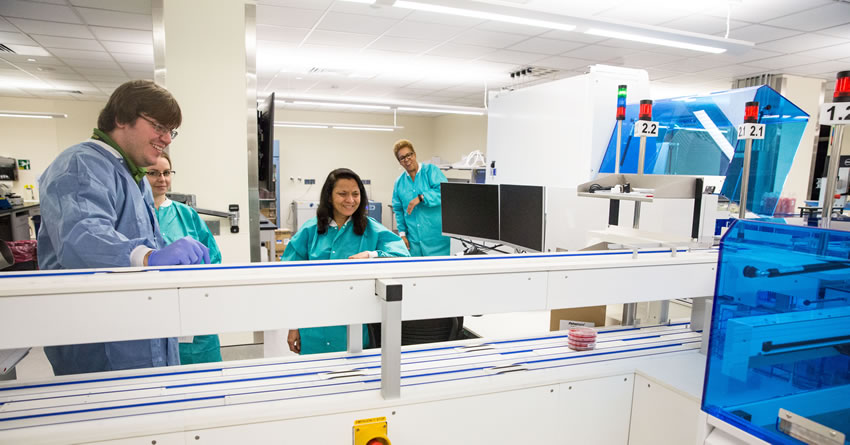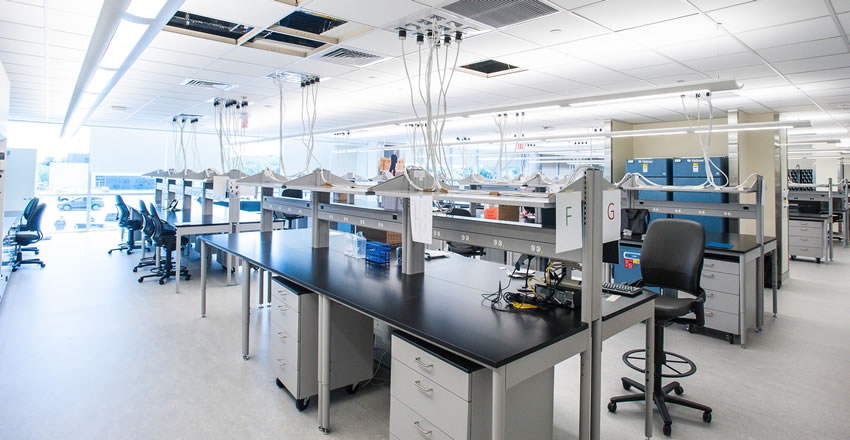Perfecting Pathology

New clinical pathology facility serves cancer patients
If you’re a patient at the Rogel Cancer Center, chances are your treatment plan was determined in part by the results on a pathology report. Pathologists are a crucial part of every patient’s health care team, but their work usually happens behind the scenes in a laboratory setting. They examine tissue samples under the microscope to determine whether cells are benign or malignant, and they often run further tests to determine your exact diagnosis. Having a complete pathology report is important in developing a specific treatment plan for each patient.
Thanks to a new 139,000 square foot state-of-the-art facility furnished with advanced equipment, Michigan Medicine pathologists now have the optimal space to study, understand, track and decode each patient’s biopsy so a precise diagnosis can be made and treatment can begin.
“This new clinical pathology facility will allow us to keep pace with the rapidly accelerating growth in sophisticated analysis of patient samples, improving efficiency and turnaround time while providing more than 1,100 different test options for the providers who rely on us,” says Charles Parkos, M.D., Ph.D., chair of pathology.

Bringing many functions together in one place will improve efficiency, speed and patient care. For instance, when a cancer patient has surgery to remove a tumor, the cancerous tissue is brought to the surgical pathology area to be prepped and placed on microscope slides for pathologists to examine. Other pathology specialists are now in very close proximity and can be called upon for further input and expertise, making for a streamlined process and better care.
Other improvements abound. Six molecular diagnostic laboratories have been brought together in the same space, providing back-up staff and equipment. This will enable faster genetic testing to look for mutations in DNA that may be causing a patient’s disease or to help determine which treatment method will be most effective.
All of this positions Michigan Medicine well for the era of precision health, where an individual patient’s care can be designed based on his or her unique characteristics down to the level of DNA variations.
The clinical pathology facility will benefit not only Rogel Cancer Center patients, but thousands of other cancer patients whose tissue samples come to Michigan Medicine for analysis due to our highly trained experts in cancer pathology.
Continue reading the Fall, 2018 issue of Thrive
